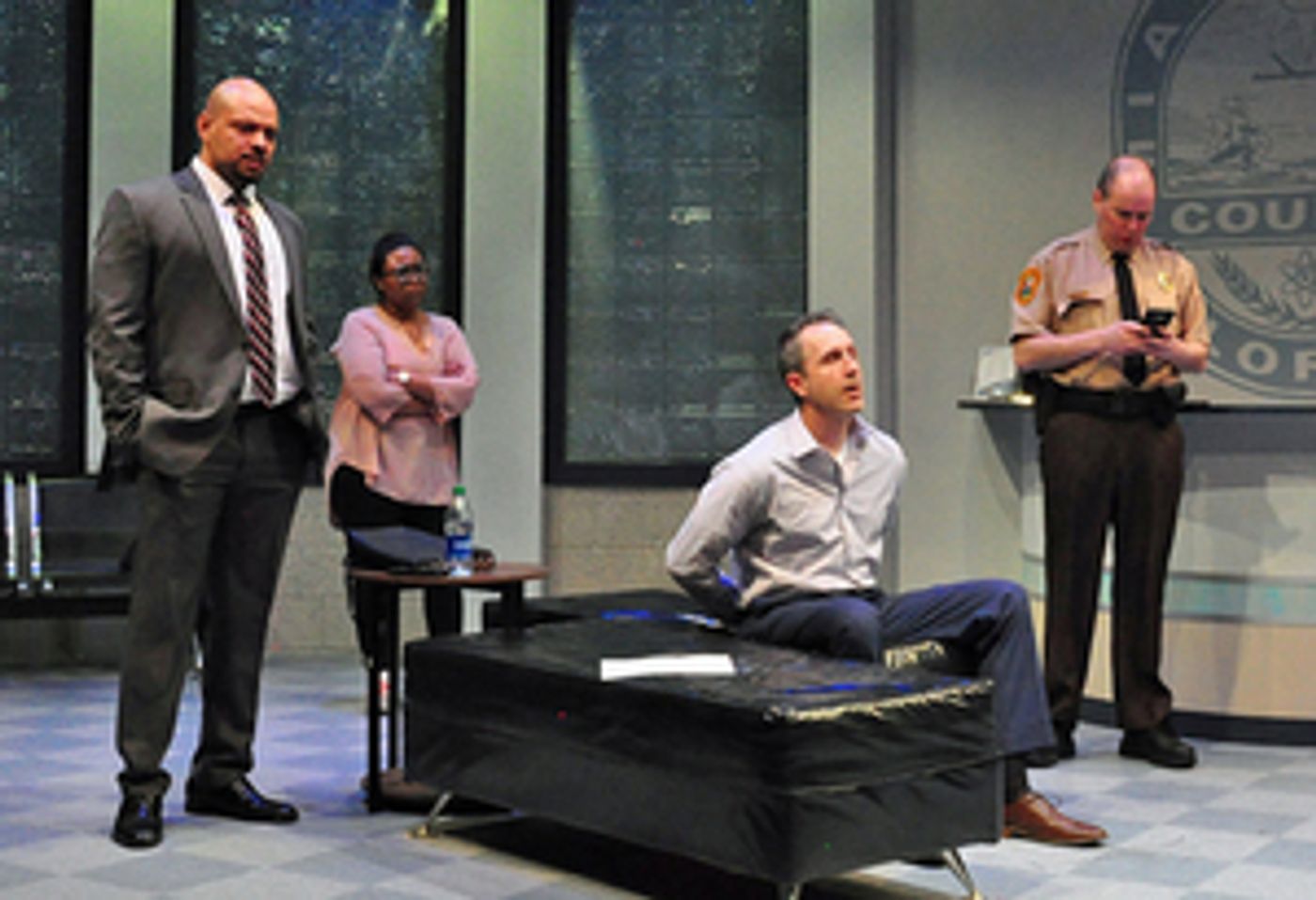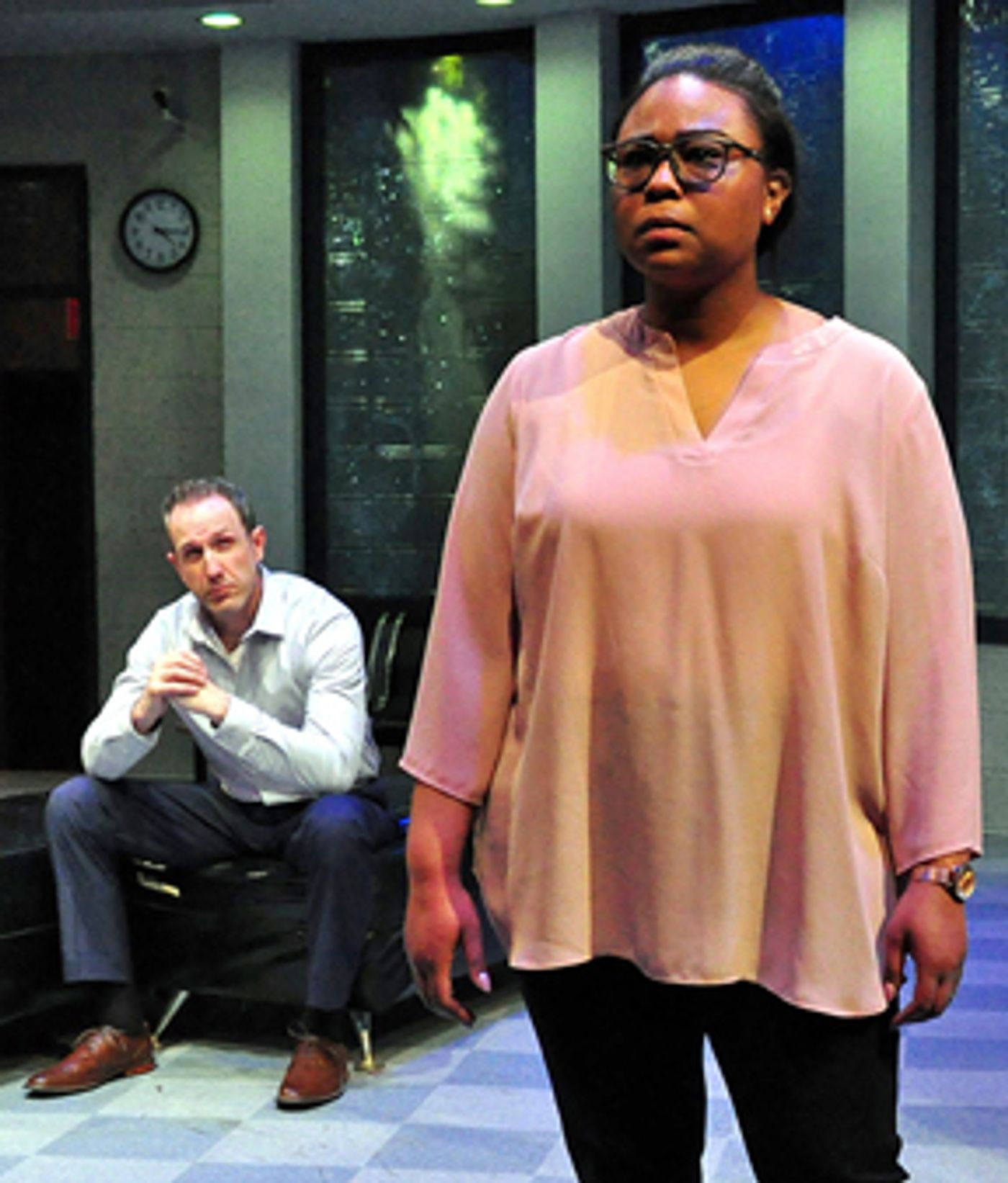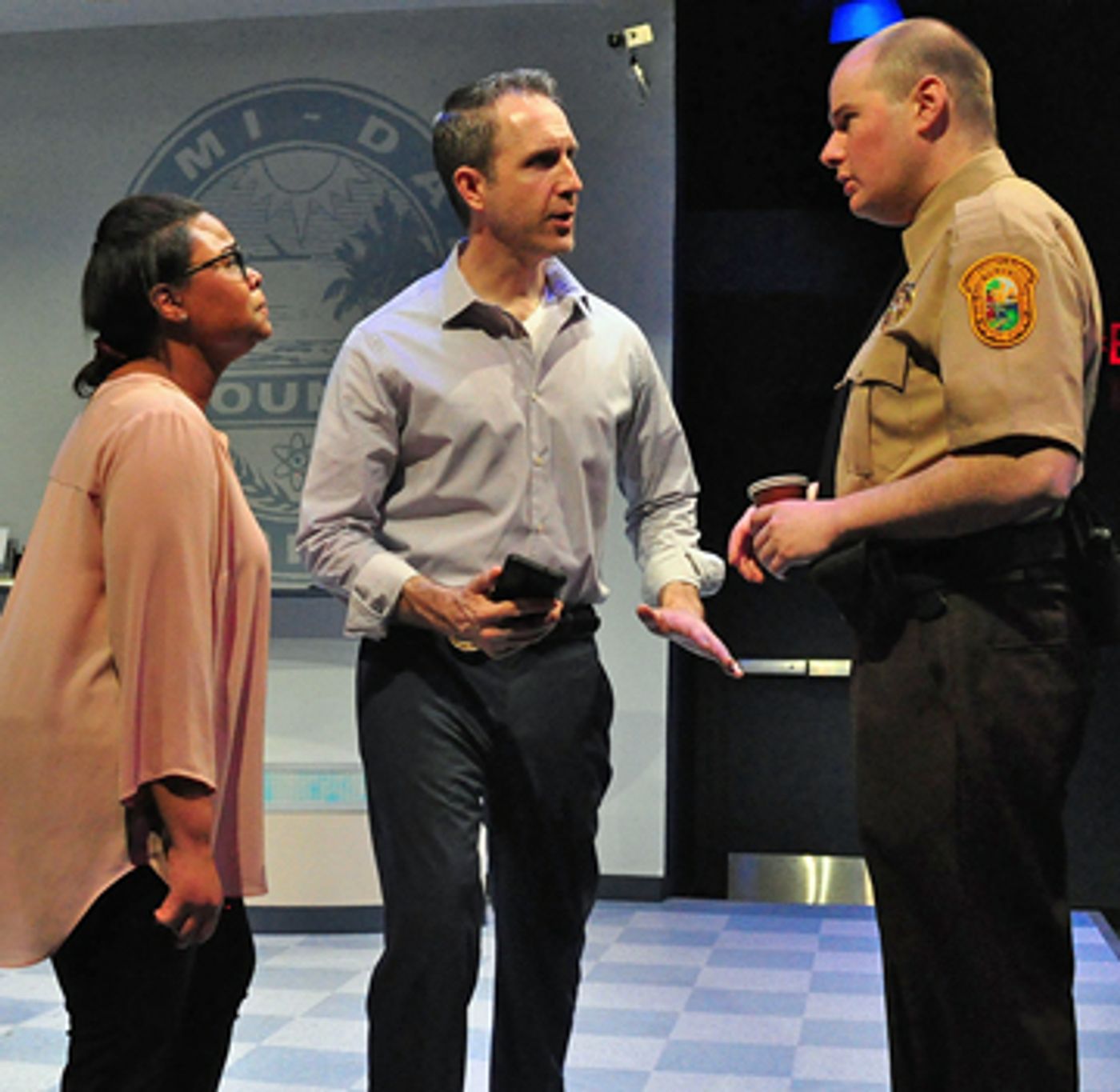Review: AMERICAN SON at Unicorn Theatre

Bob Linebarger in Unicorn Theatre's production of American Son
AMERICAN SON is a bold, intense, ninety minute study of race and law enforcement in America during the early twenty-first century. How you interpret what you see depends entirely on who you are and your own preconceptions. I will admit to having left the theater puzzled and with a feeling of hopelessness about relations between the races, and how they can ever be positively resolved.
There is no question that AMERICAN SON is well acted, well directed, well produced, and topical. It is produced at Unicorn Theatre in cooperation with the Black Repertory Theatre of Kansas City and directed by Damron Russel Armstrong. That the play is an expression of African-American rage is undeniable. It is also altogether reasonable for anyone (regardless of color) to assign race fault to the sad outcome, but there is more to it than simply that.
The playwright (who happens to be a white lawyer from Miami) has constructed something much more complex and that is why the hopelessness of the situation drawn by the play is so troubling.
The scene is a police substation in Dade County Florida. Kendra Ellis-Connor (Teisha M. Bankston) is a frantic Mom searching for her missing eighteen year old son, Jamal. She has been notified that Jamal's vehicle, a late model Lexus, has been involved in a police incident.

in AMERICAN SON
Officer Paul Larkin (Bob Linebarger), a relatively new, white officer, has been assigned to answer her questions as best he can within established police procedure while keeping Kendra calm and awaiting the arrival of a more senior officer.
Kendra is a black professional who is a tenured PhD in Psychology at a local University. She has fought hard to get where she is after having been raised in a less than privileged part of the city. Her upbringing and inborn distrust of the police causes her to assume that the white officer in front of her acts out of racial animus. She pushes him to the extreme until he buckles, exceeds his authority, and shares the information he can access up to the limit of his low level security clearance. This is not enough for Kendra. She again pushes Officer Larkin over the edge. She should know better.
Kendra is half of a long, but troubled mixed-race marriage to FBI agent Scott Connor (Brian Paulette). Scott is Jamal's devoted father. Scott has recently left the marriage over the kind of behavior that Kendra displays tonight at the Police Station. One would expect that two decades of marriage to a federal law enforcement officer would have given her some notion of standard procedure. It has not.
Is Scott a bad guy? It is difficult to tell. It is certain that Kendra is not going to give an inch to anything that he can say. He attempts to calm her into patience. They battle.
A video link online depicts what happened, but not definitively. The appearance of the senior officer, a black detective named John Stokes (Lewis J. Morrow), adds to the immediate confusion. Scott demands answers. Lt. Stokes has none to share at that particular moment. The situation escalates. Scott is arrested for battery.
Jamal is described as a good kid. He is smart and motivated. He has just passed his eighteenth birthday in anticipation of graduation from an elite high school and before his entrance into West Point. The Lexus was a graduation present. According to Kendra, the breakup of the marriage has caused Jamal to rebel. The family has means and has spent to provide Jamal with a home in a more than nice neighborhood and an exceptional school. The elite school is said to have caused Jamal to put undue pressure on to himself.

and Bob Linebarger in American Son
Jamal has been out with friends with whom Kendra is not familiar and with a protest bumper sticker on the back of the Lexus that says SHOOT COPS and in small type a reference to now ubiquitous cell phone cameras.
An African-American patrol officer follows the Lexus with the offensive bumper sticker and witnesses a small drug buy. He stops the vehicle. Jamal is not behind the wheel. The officer collects identifications, instructs the occupants to stay in the Lexus, and returns to his patrol car. Jamal's friends panic. One approaches the policeman. The other runs. Jamal stays with the Lexus with his hands on the hood. The officer discharges his weapon and Jamal is accidently hit and killed.
The play ends with Kendra's primal scream. On the way out of the theater, an African American audience member who I did not know approached me as an older white man and asked my opinion of the play. He could not have known that it is my job to evaluate the production. I never comment on any show I'm reviewing until I sit down to write. I said it was interesting.
I know he wanted me to acknowledge his outrage and my answer just reinforced his sense of unfairness. I do understand, but in this play I am unable see a way around the hopelessness. Nobody does anything wrong and yet a tragic result repeats. How is it possible to get past the outrage? Who is there to blame?
American Son continues at Unicorn Theatre through March 29. It is an evening worth your time and some serious thought.
Photos courtesy of Unicorn Theatre and Cynthia Levin
Reader Reviews

Videos

